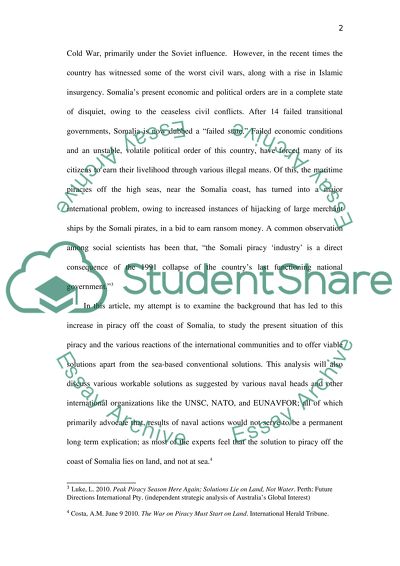Cite this document
(“The solution to piracy off the coast of somalia lies on land not at Essay”, n.d.)
Retrieved from https://studentshare.org/environmental-studies/1404769-the-solution-to-piracy-off-the-coast-of-somalia
Retrieved from https://studentshare.org/environmental-studies/1404769-the-solution-to-piracy-off-the-coast-of-somalia
(The Solution to Piracy off the Coast of Somalia Lies on Land Not at Essay)
https://studentshare.org/environmental-studies/1404769-the-solution-to-piracy-off-the-coast-of-somalia.
https://studentshare.org/environmental-studies/1404769-the-solution-to-piracy-off-the-coast-of-somalia.
“The Solution to Piracy off the Coast of Somalia Lies on Land Not at Essay”, n.d. https://studentshare.org/environmental-studies/1404769-the-solution-to-piracy-off-the-coast-of-somalia.


